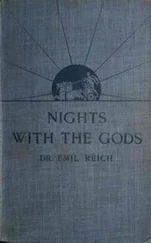Anne Rice - Interview with the Vampire
Здесь есть возможность читать онлайн «Anne Rice - Interview with the Vampire» весь текст электронной книги совершенно бесплатно (целиком полную версию без сокращений). В некоторых случаях можно слушать аудио, скачать через торрент в формате fb2 и присутствует краткое содержание. Год выпуска: 1976, ISBN: 1976, Издательство: Alfred A. Knopf, Жанр: Ужасы и Мистика, на английском языке. Описание произведения, (предисловие) а так же отзывы посетителей доступны на портале библиотеки ЛибКат.
- Название:Interview with the Vampire
- Автор:
- Издательство:Alfred A. Knopf
- Жанр:
- Год:1976
- ISBN:0394498216
- Рейтинг книги:5 / 5. Голосов: 1
-
Избранное:Добавить в избранное
- Отзывы:
-
Ваша оценка:
- 100
- 1
- 2
- 3
- 4
- 5
Interview with the Vampire: краткое содержание, описание и аннотация
Предлагаем к чтению аннотацию, описание, краткое содержание или предисловие (зависит от того, что написал сам автор книги «Interview with the Vampire»). Если вы не нашли необходимую информацию о книге — напишите в комментариях, мы постараемся отыскать её.
Interview with the Vampire — читать онлайн бесплатно полную книгу (весь текст) целиком
Ниже представлен текст книги, разбитый по страницам. Система сохранения места последней прочитанной страницы, позволяет с удобством читать онлайн бесплатно книгу «Interview with the Vampire», без необходимости каждый раз заново искать на чём Вы остановились. Поставьте закладку, и сможете в любой момент перейти на страницу, на которой закончили чтение.
Интервал:
Закладка:
“I said something like, ‘Don’t touch it!’ and he laughed at me. ‘I’ll touch it if I like!’ he said. ‘You don’t know, for example, all the ways you can die. And dying now would be such a calamity, wouldn’t it?’
“ ‘There must be someone else in the world to teach me these things,’ I said. ‘Certainly you’re not the only vampire! And your father, he’s perhaps seventy. You couldn’t have been a vampire long, so someone must have instructed you…
“ ‘And do you think you can find other vampires by yourself? They might see you coming, my friend, but you won’t see them. No, I don’t think you have much choice about things at this point, friend. I’m your teacher and you need me, and there isn’t much you can do about it either way. And we both have people to provide for. My father needs a doctor, and then there is the matter of your mother and sister. Don’t get any mortal notions about telling them you are a vampire. Just provide for them and for my father, which means that tomorrow night you had better kill fast and then attend to the business of your plantation. Now to bed. We both sleep in the same room; it makes for far less risk.’
“ ‘No, you secure the bedroom for yourself,’ I said. ‘I’ve no intention of staying in the same room with you.’
“He became furious. ‘Don’t do anything stupid, Louis. I warn you. There’s nothing you can do to defend yourself once the sun rises, nothing. Separate rooms mean separate security. Double precautions and double chance of notice.’ He then said a score of things to frighten me into complying, but he might as well have been talking to the walls. I watched him intently, but I didn’t listen to him. He appeared frail and stupid to me, a man made of dried twigs with a thin, carping voice. ‘I sleep alone,’ I said, and gently put my hand around the candle flames one by one. ‘It’s almost morning!’ he insisted.
“ ‘So lock yourself in,’ I said, embracing my coffin, hoisting it and carrying it down the brick stairs. I could hear the locks snapping on the French doors above, the swoosh of the drapes. The sky was pale but still sprinkled with stars, and another light rain blew now on the breeze from the river, speckling the flagstones. I opened the door of my brother’s oratory, shoving back the roses and thorns which had almost sealed it, and set the coffin on the stone floor before the priedieu. I could almost make out the images of the saints on the walls. ‘Paul,’ I said softly, addressing my brother, ‘for the first time in my life I feel nothing for you, nothing for your death; and for the first time I feel everything for you, feel the sorrow of your loss as if I never before knew feeling.’ You see…”
The vampire turned to the boy. “For the first time now I was fully and completely a vampire. I shut the wood blinds flat upon the small barred windows and bolted the door. Then I climbed into the satin-lined coffin, barely able to see the gleam of cloth in the darkness, and locked myself in. That is how I became a vampire.”
“And there you were,” said the boy after a pause, “with another vampire you hated.”
“But I had to stay with him,” answered the vampire. “As I’ve told you, he had me at a great disadvantage. He hinted there was much I didn’t know and must know and that he alone could tell me. But in fact, the main part of what he did teach me was practical and not so difficult to figure out for oneself. How we might travel, for instance, by ship, having our coffins transported for us as though they contained the remains of loved ones being sent here or there for burial; how no one would dare to open such a coffin, and we might rise from it at night to clean the ship of rats — things of this nature. And then there were the shops and businessmen he knew who admitted us well after hours to outfit us in the finest Paris fashions, and those agents willing to transact financial matters in restaurants and cabarets. And in all of these mundane matters, Lestat was an adequate teacher. What manner of man he’d been in life, I couldn’t tell and didn’t care; but he was for all appearances of the same class now as myself, which meant little to me, except that it made our lives run a little more smoothly than they might have otherwise. He had impeccable taste, though my library to him was a ‘pile of dust,’ and he seemed more than once to be infuriated by the sight of my reading a book or writing some observations in a journal. ‘That mortal nonsense,’ he would say to me, while at the same time spending so much of my money to splendidly furnish Pointe du Lac, that even I, who cared nothing for the money, was forced to wince. And in entertaining visitors at Pointe du Lac — those hapless travelers who came up the river road by horseback or carriage begging accommodations for the night, sporting letters of introduction from other planters or officials in New Orleans — to these he was so gentle and polite that it made things far easier for me, who found myself hopelessly locked to him and jarred over and over by his viciousness.”
“But he didn’t harm these men?” asked the boy.
“Oh yes, often, he did. But I’ll tell you a little secret if I may, which applies not only to vampires, but to generals, soldiers, and kings. Most of us would much rather see somebody die than be the object of rudeness under our roofs. Strange… yes. But very true, I assure you. That Lestat hunted for mortals every night, I knew. But had he been savage and ugly to my family, my guests, and my slaves, I couldn’t have endured it. He was not. He seemed particularly to delight in the visitors. But he said we must spare no expense where our families were concerned. And he seemed to me to push luxury upon his father to an almost ludicrous point. The old blind man must be told constantly how fine and expensive were his bed jackets and robes and what imported draperies had just been fixed to his bed and what French and Spanish wines we had in the cellar and how much the plantation yielded even in bad years when the coast talked of abandoning the indigo production altogether and going into sugar. But then at other times he would bully the old man, as I mentioned. He would erupt into such rage that the old man whimpered like a child. ‘Don’t I take care of you in baronial splendor!’ Lestat would shout at him. ‘Don’t I provide for your every want! Stop whining to me about going to church or old friends! Such nonsense. Your old friends are dead. Why don’t you die and leave me and my bankroll in peace!’ The old man would cry softly that these things meant so little to him in old age. He would have been content on his little farm forever. I wanted often to ask him later, ‘Where was this farm? From where did you come to Louisiana?’ to get some clue to that place where Lestat might have known another vampire. But I didn’t dare to bring these things up, lest the old man start crying and Lestat become enraged. But these fits were no more frequent than periods of near obsequious kindness when Lestat would bring his father supper on a tray and feed him patiently while talking of the weather and the New Orleans news and the activities of my mother and sister. It was obvious that a great gulf existed between father and son, both in education and refinement, but how it came about, I could not quite guess. And from this whole matter, I achieved a somewhat consistent detachment.
“Existence, as I’ve said, was possible. There was always the promise behind his mocking smile that he knew great things or terrible things, had commerce with levels of darkness I could not possibly guess at. And all the time, he belittled me and attacked me for my love of the senses, my reluctance to kill, and the near swoon which killing could produce in me. He laughed uproariously when I discovered that I could see myself in a mirror and that crosses had no effect upon me, and would taunt me with sealed lips when I asked about God or the devil. ‘I’d like to meet the devil some night,’ he said once with a malignant smile. ‘I’d chase him from here to the wilds of the Pacific. I am the devil.’ And when I was aghast at this, he went into peals of laughter. But what happened was simply that in my distaste for him I came to ignore and suspect him, and yet to study him with a detached fascination. Sometimes I’d find myself staring at his wrist from which I’d drawn my vampire life, and I would fall into such a stillness that my mind seemed to leave my body or rather my body to become my mind; and then he would see me and stare at me with a stubborn ignorance of what I felt and longed to know and, reaching over, shake me roughly out of it. I bore this with an overt detachment unknown to me in mortal life and came to understand this as a part of vampire nature: that I might sit at home at Pointe du Lac and think for hours of my brother’s mortal life and see it short and rounded in unfathomable darkness, understanding now the vain and senseless wasting passion with which I’d mourned his loss and turned on other mortals like a maddened animal. All that confusion was then like dancers frenzied in a fog; and now, now in this strange vampire nature, I felt a profound sadness. But I did not brood over this. Let me not give you that impression, for brooding would have been to me the most terrible waste; but rather I looked around me at all the mortals that I knew and saw all life as precious, condemning all fruitless guilt and passion that would let it slip through the fingers like sand. It was only now as a vampire that I did come to know my sister, forbidding her the plantation for the city life which she so needed in order to know her own time of life and her own beauty and come to marry, not brood for our lost brother or my going away or become a nursemaid for our mother. And I provided for them all they might need or want, finding even the most trivial request worth my immediate attention. My sister laughed at the transformation in me when we would meet at night and I would take her from our flat out the narrow wooden streets to walk along the tree-lined levee in the moonlight, savoring the orange blossoms and the caressing warmth, talking for hours of her most secret thoughts and dreams, those little fantasies she dared to tell no one and would even whisper to me when we sat in the dim lit parlor entirely alone. And I would see her sweet and palpable before me, a shimmering, precious creature soon to grow old, soon to die, soon to lose these moments that in their tangibility promised to us, wrongly… wrongly, an immortality. As if it were our very birthright, which we could not come to grasp the meaning of until this time of middle life when we looked on only as many years ahead as already lay behind us. When every moment, every moment must be first known and then savored.
Читать дальшеИнтервал:
Закладка:
Похожие книги на «Interview with the Vampire»
Представляем Вашему вниманию похожие книги на «Interview with the Vampire» списком для выбора. Мы отобрали схожую по названию и смыслу литературу в надежде предоставить читателям больше вариантов отыскать новые, интересные, ещё непрочитанные произведения.
Обсуждение, отзывы о книге «Interview with the Vampire» и просто собственные мнения читателей. Оставьте ваши комментарии, напишите, что Вы думаете о произведении, его смысле или главных героях. Укажите что конкретно понравилось, а что нет, и почему Вы так считаете.











